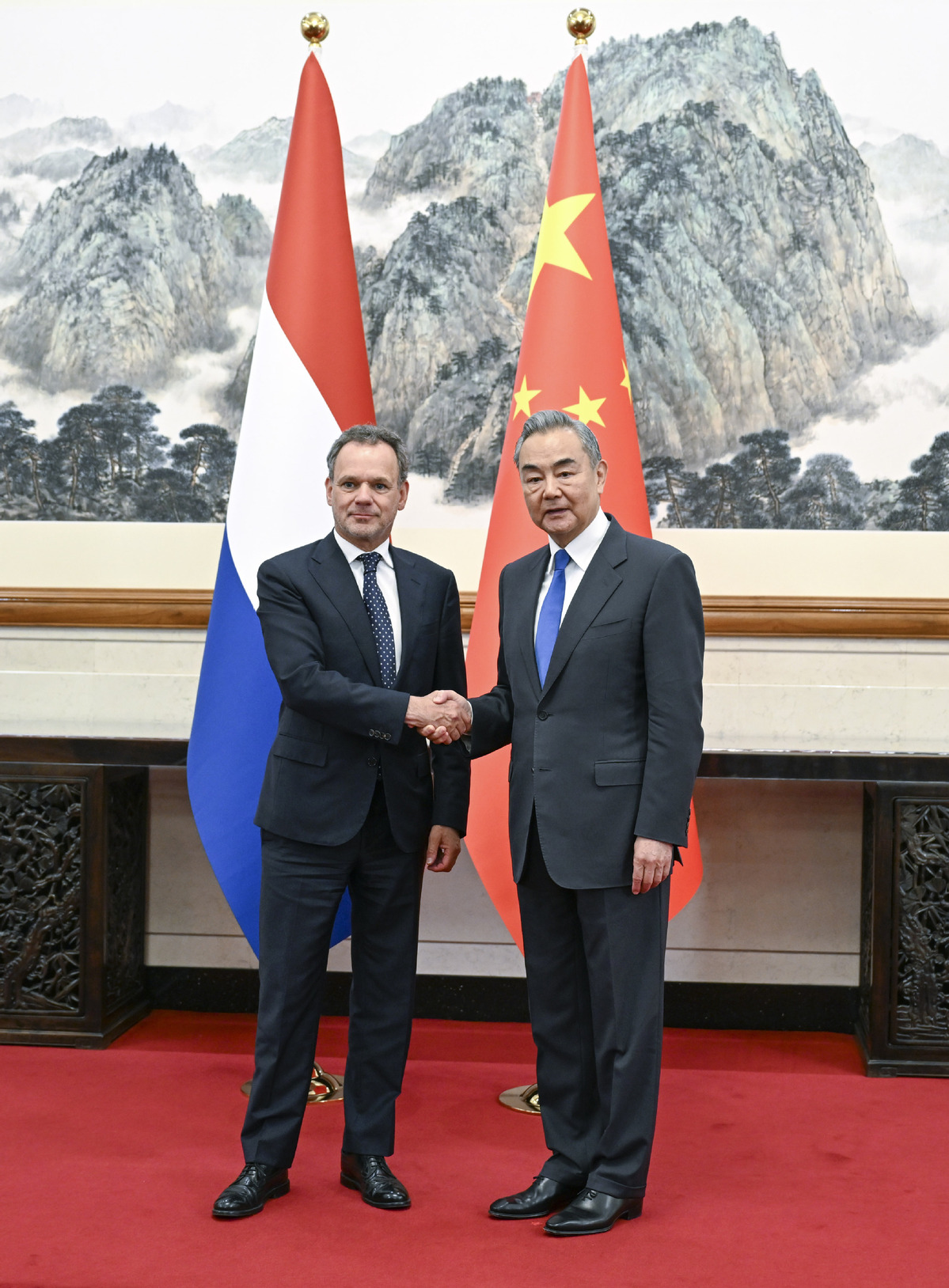Closer partnership for global stability: China Daily editorial


The recent visit to China by Dutch Foreign Minister Caspar Veldkamp, at the invitation of Foreign Minister Wang Yi, marks a milestone in the ongoing high-level diplomatic exchanges between China and the European Union and its member states.
The visit comes on the heels of a series of high-level diplomatic engagements, including meetings with Danish Foreign Minister Lars Lokke Rasmussen and telephone discussions with German Foreign Minister Johann Wadephul and Polish Foreign Minister Radoslaw Sikorski. These interactions underscore the deepening ties between China and the EU.
This year marks the 50th anniversary of the establishment of diplomatic relations between China and the EU's predecessor, the European Community, on May 6, 1975. Over the past five decades, China and the EU have cultivated a robust trade and investment relationship, with bilateral trade soaring from $2.4 billion annually to $786 billion in 2024. European companies such as Volkswagen, Siemens, Philips, Heineken, Maersk, and Carlsberg have become household names in China, reflecting the depth of economic cooperation between the two sides.
Moreover, China and the EU have established various dialogue and consultation mechanisms spanning the strategic, economic, trade, digital, environmental, and people-to-people domains, underscoring their commitment to expand cooperation and address differences.
The history of the past 50 years demonstrates that despite their different political systems and development paths, China and the EU have reaped substantial benefits from their cooperative endeavors. Their partnership has thrived on mutual respect and shared interests, with both sides emphasizing collaboration over conflict. Their multilateral coordination has delivered solid results.
China-EU relations have grown into one of the most influential relationships in the world, making important contributions to enhancing the well-being of the people of China and Europe and promoting peace and development in the world.
As key proponents of multilateralism in a multipolar world, China and the EU advocate for upholding international norms and institutions, including the United Nations and the World Trade Organization, while opposing protectionist measures and divisive geopolitical strategies.
The recent exchanges between China and the EU carry added significance as both parties reaffirm their commitment to defending international laws and norms, tackling global challenges, and promoting peace and stability in regions like Europe and the Middle East. By aligning their efforts on issues such as climate change, pandemic response and conflict resolution, China and the EU can leverage their collective strengths to foster positive outcomes on the global stage.
They should uphold multilateralism, safeguard fairness and justice, oppose unilateralism and bullying, strengthen their collaboration to address global challenges, and work for an equal and orderly multipolar world and universally beneficial and inclusive economic globalization, so as to contribute more to world peace, stability, development and prosperity.
While acknowledging existing differences, such as trade disputes and human rights concerns, the progress made in resolving them through dialogue and cooperation underscores the potential for constructive engagement between China and the EU. By strengthening their mutual understanding and embracing collaboration, rather than confrontation, both sides stand to unlock new opportunities for economic growth and social advancement. The EU's pursuit of strategic autonomy should not come at the expense of the partnership with China, as mutual cooperation holds the key to unlocking shared prosperity and innovation.
By transcending their differences and embracing the spirit of mutual respect and collaboration, China and the EU can set a positive example for the international community and contribute to a more harmonious and interconnected world.


































